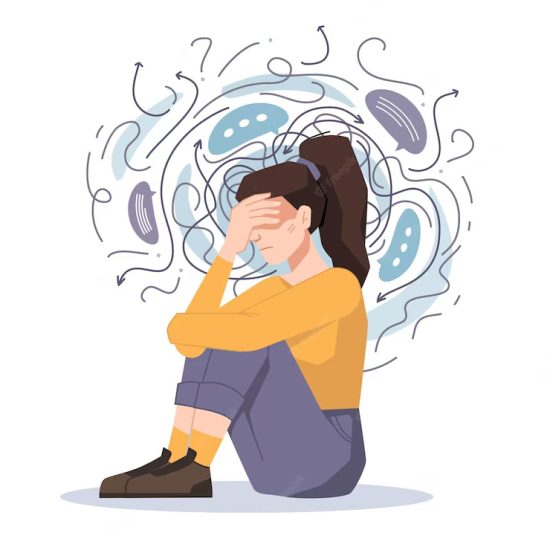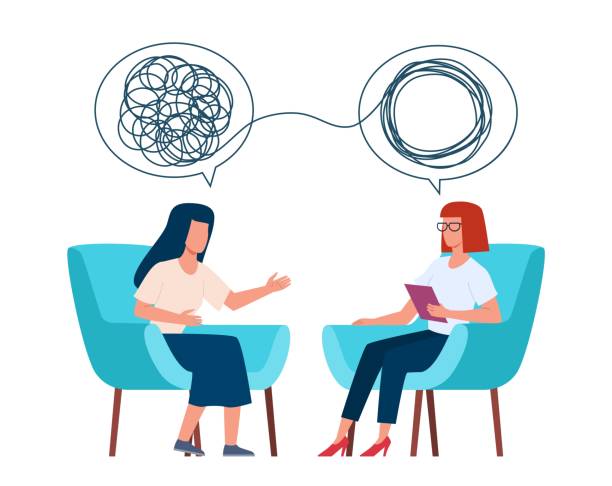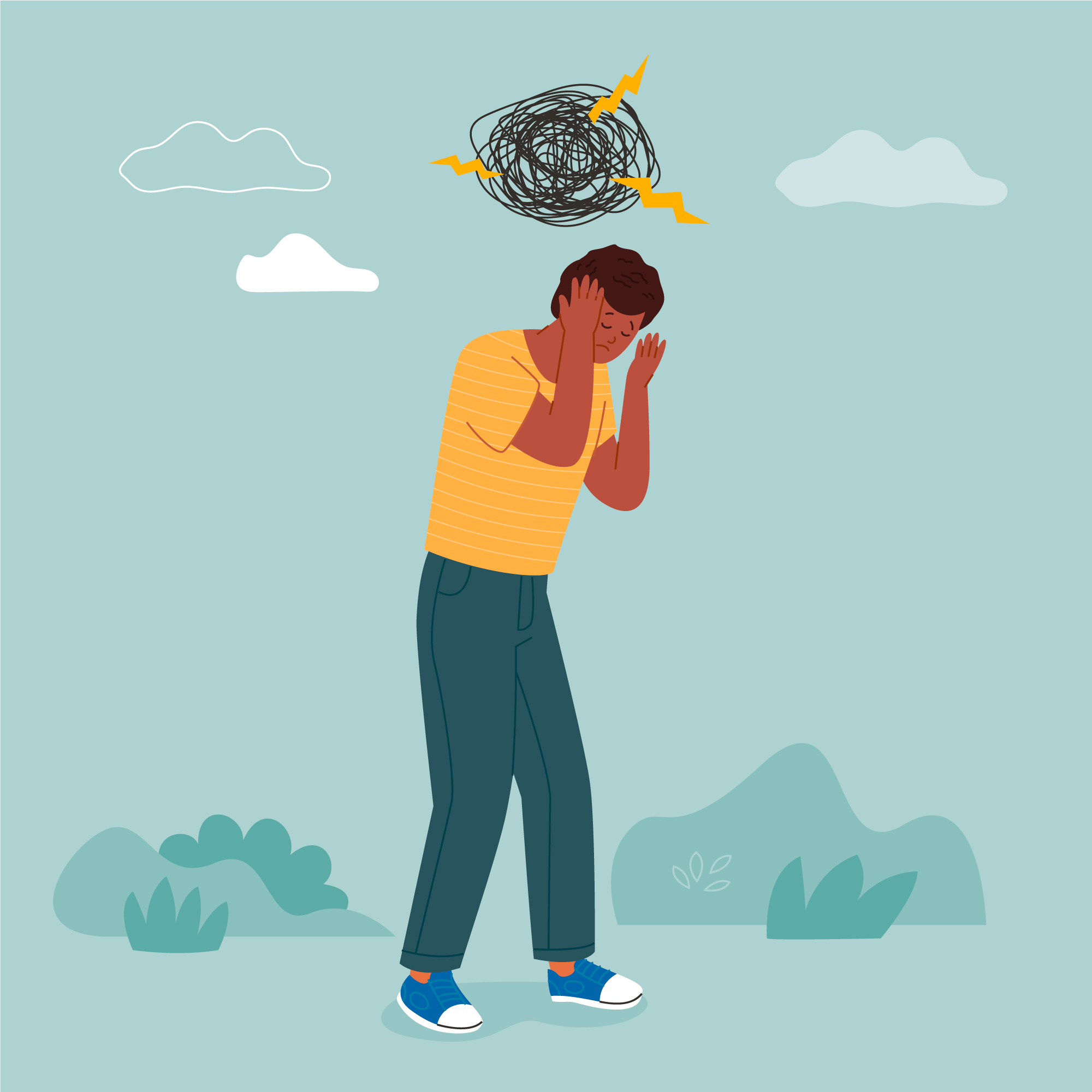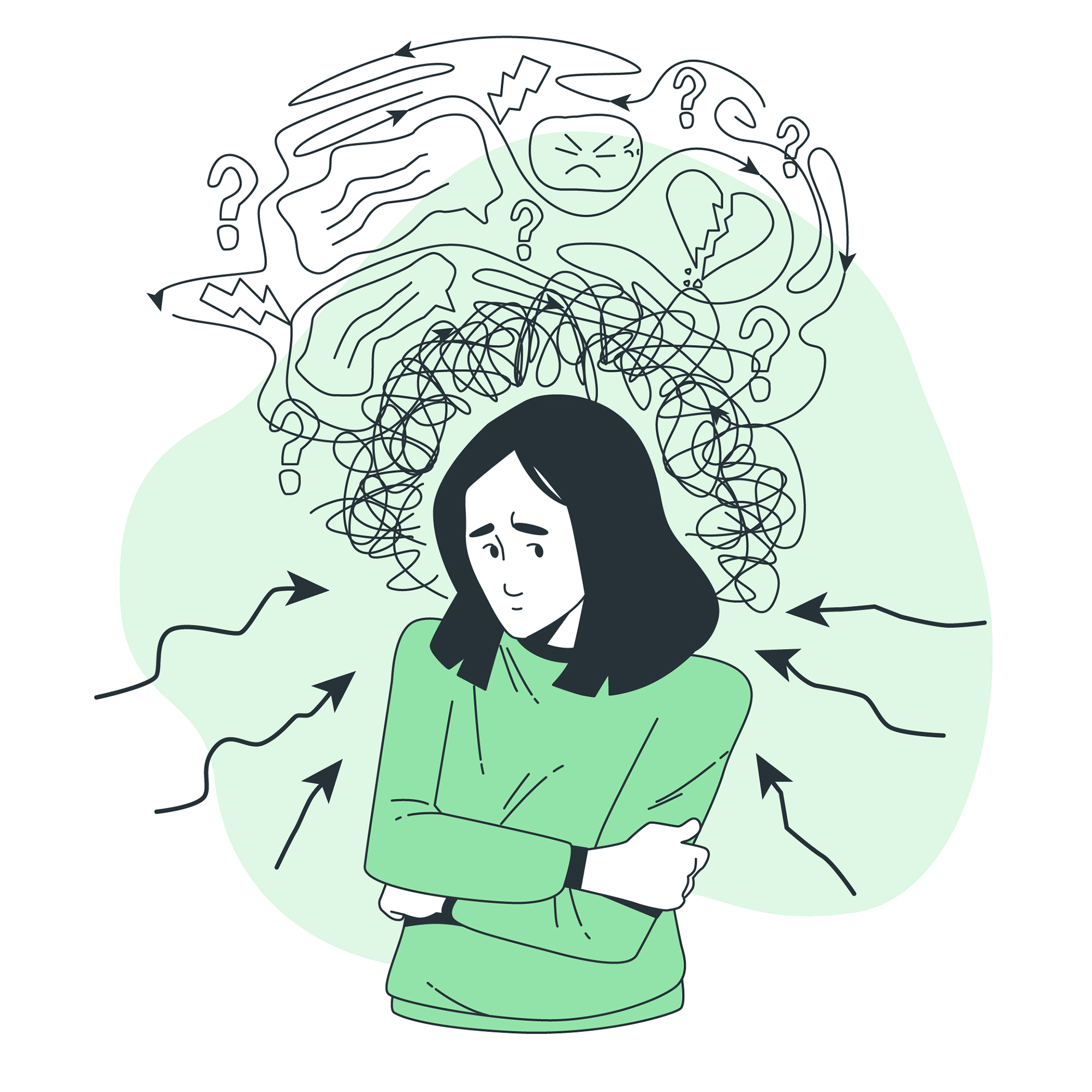
Over the recent years, there has been a growing number of people opting for online counselling services. This option has provided many individuals with better access to mental health services.
Consulting a counsellor in person can be difficult for many due to issues with travel and lack of professionals in their area. However, due to online counselling, many are now able to consult professionals with just a click of a button.
Adding to this, online counselling also serves as a convenient, flexible, and a cost-effective option for many individuals.
Anxiety and Depression are two of the most common mental health concerns observed around us. Counselling and Psychotherapy can be a great option for those undergoing these challenges.
Online counselling provides individuals facing anxiety or depression, an accessible and convenient option to seek therapy, at an affordable price point.
This article aims to explore how online counselling can be an effective tool in managing anxiety or depression.
Understanding Anxiety and Depression

Understanding Anxiety
Anxiety is an uneasy feeling of dread, fear, or worry. It is a highly common experience that every individual has experienced from time-to-time. However, when this unsettling feeling prolongs for too long, it can cause severe distress and discomfort.
Anxiety is a feeling, like sadness, happiness, and anger. And every feeling has an impact on both the mind and the body. For example, think about the last instance when you felt really happy.
Try to recollect how this feeling of happiness felt in your body. Maybe it feels warm, fuzzy, and light. You can probably imagine how you felt these sensations in your chest, your belly, and in other parts of your body.
You would have also had happy and positive thoughts at the time. This shows how every emotion carries a mental and physical manifestation.
Similarly, anxiety, as a feeling, carries a physical and mental manifestation. When these uncomfortable feelings go unattended and unprocessed, it lingers in the body and begins to produce symptoms. These are some of the most common symptoms of anxiety.
The physical symptoms of anxiety can include palpitations (racing heartbeat,) body pain, lightheadedness, headaches or migraines, and fatigue. Some of the emotional or mental symptoms of anxiety are racing thoughts, excessive worry, irritability, low-self esteem, and inability to focus.
Anxiety can often feel overwhelming, and can feel like there is nothing that can make you feel calmer or better.
Anxiety can have an impact on your mental health and how you function on a daily basis. For some individuals, anxiety can impact their work-life or interpersonal relationships.
To learn more about the symptoms, causes, and steps to manage anxiety, click here.
Understanding Depression
Depression is a persistent, and prolonged feeling of sadness and hopelessness. Many people misinterpret sadness as depression. While there are a few similarities, depression is a more complex, and often complicated experience for those who go through it.
If you are experiencing depression, it is often difficult to communicate how you are feeling. It can make you feel like you are alone in this journey. However, depression is an extremely common concern that can be resolved by seeking professional help.
Depression also consists of physical, emotional, and mental symptoms. Physically, it can cause changes in your sleeping and eating patterns. It can cause fatigue, and anxiety in some individuals. Many individuals with depression may also have random aches and pains in their bodies.
There are changes that occur in the mental and emotional well-being of an individual undergoing depression. Some of the symptoms are a feeling of hopelessness, emptiness, or numbness. It causes low self-esteem, guilt, and shame.
Depression can also impact your ability to focus and manage tasks. Some individuals may have thoughts or engage in suicidal or self-harm behaviours.*
Depression can certainly impact multiple areas of life, such as your personal and professional life. It can often cause a negative shift in your interpersonal relationship, and more importantly, the relationship you have with yourself.
*If you are feeling actively suicidal or violent or are losing weight, having severe sleep deprivation and no motivation to live, then seeing a psychiatrist and meeting a therapist in-person is recommended. We also suggest you to reach out to a Suicide Helpline Number.
Depression can feel heavy and can often weigh you down. With the hopelessness that you feel in depression, you may feel like things can never get better. However, individuals with depression often greatly benefit from seeking professional help.

Feeling Low?
Counseling can be a great tool for you to manage and overcome depression and lead a happy and balanced life.
We are here for you.
Rise Of Online Counseling
Online counseling has been attracting increased popularity over the recent years. Many individuals opt for online counseling as it provides them an easy and effective option if they are seeking therapy, wherever they are in the world.
Online Counseling, or telecounseling, is a form of therapy that is offered on an online platform. Some examples of the mediums used in telecounseling are: Phone-call, messaging, and most commonly, video calls.
Despite its favourability, people have certain myths and misconceptions about Online Counseling. We have attempted to clarify and explain four common myths about online counseling here:
Myth 1: Online Counseling is a less effective option for those seeking counselling. This isn’t true. Online Counseling can be just as effective as offline counseling. (Eames, 2023,) states how online counseling is not just effective, but also an affordable option that you can access in the comfort of your home.
Online Counseling can be a great option for various concerns, and includes personal and interpersonal ones. People can opt for online counselling if they are experiencing depression, anxiety, relationship issues, and a myriad of other concerns.
Myth 2: Online Counseling is not safe as it is conducted online. Safety is one of the hallmarks of a good counselling session. Therefore, online counseling is also a process that keeps your safety a priority. The online counseling platforms are encrypted and secure, and prior consent is always taken before taking any steps in the therapy process.
Myth 3: Online Counseling lacks privacy. Online Counseling is conducted in a private, comfortable place to ensure your privacy. The information you share during an online counselling session is not shared with a third party. To ensure privacy, we also recommend you to opt for a space at home where there are minimal distractions. You may also use a pair of headphones/earphones during your session.
Myth 4: There is no personal connection with the therapist in online counselling. This is not true. For an effective counselling process, there needs to be a good rapport and connection between the therapist and the client. Therefore, counselling in an online platform also involves establishing this connection.
Your counselor is equipped and trained to help you identify and work on your concerns. They are also trained to conduct effective therapy on online platforms. Thus, you can certainly rely on online counselling for your concerns.
To learn more about Online Counseling, please click here.
Ask a Therapist
If you are interested to know more about depression, anxiety and other mental health topics, ‘Ask A Therapist’ is a platform for you to ask your questions related to Mental Health, Mindfulness & Emotional Well-Being to our team of qualified Therapists.

Advantages Of Online Counseling For Anxiety And Depression
Here are some of the advantages of going for online counseling for anxiety and depression:
- Online Counseling can be less intimidating: As you are accessing counseling from the comfort of your home, you will feel less intimidated by the process of therapy. Also, meeting your therapist online versus in-person, keeps your anonymity, and reduces the nervousness that is often experienced when one first starts therapy.
- Online Counseling can offer privacy: Processing something difficult like anxiety or depression requires a private and safe space. Online counseling can be a great option, as therapists are trained to maintain confidentiality with the information you share in the session. Also, the platforms used in telecounselling are secure and private.
- Online Counseling can offer you more access to mental health resources: As many therapists are beginning to offer their services online, individuals now have more access to counsellors, and options to choose from based on the type of concern, experience, and other factors about the therapist.
- Online Counseling can be more affordable: Online counseling usually tend to be more affordable as there are no additional costs, like travel expenses, for example.
- Online Counseling can be more convenient: Online counseling is one of the most convenient options as you can attend a counseling session wherever you are in the world, as long as you have an internet connection.
Access to Qualified Professionals
While choosing a therapist for counseling, one must ensure their qualification and ability to help you with your concerns.
All our therapists are qualified psychologists with a postgraduate degree in clinical or counseling psychology. We do not hire people with diplomas or short-term training courses. They are all personally interviewed and hired by our founder Sadia Saeed who is a trained clinical psychologist and has been practicing for over 23 years. She not only ensures their qualification but also verifies their therapeutic approach. We believe it is very important that our therapists come from a supportive and exploratory therapeutic approach rather than an advisory one.
If you are interested to know more about the therapists at Inner Space, click here.
Conclusion
Online counseling can be an effective, valuable, safe, and convenient option for many individuals seeking therapy for anxiety and depression.
Anxiety and depression can be a difficult, lonely, and daunting experience to go through. However, online counseling makes the process of seeking help more accessible and less intimidating.
If you are interested in giving online counseling a try, please reach out to us by booking an appointment with us today.
About the Author
This article was written by Parvathi Ganesan, Counselor at Inner Space. This post was consulted & approved by professional therapists practicing online therapy and counseling.



